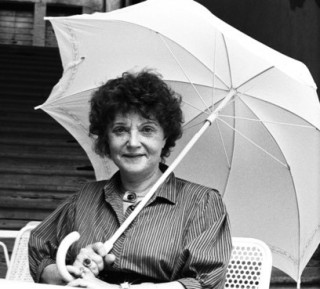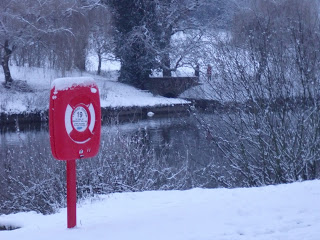A string of coloured bulbs lights a safe path round the harbour in darkness, its sharp hues too brash for the faded woodwork of the boats below. The shadows cast make the small seem big, distort the familiar into the strange, bleed colour out of the world. Once again I’m struck by the oddity of hating silence but loving the dark.
But it is not silent yet. The night is still young in relative terms, and this is the best time of the day.
Pubs and restaurants compete for the lucrative summer trade with colourful chalkboard menus offering home-cooking, casket ales, families welcome, and the air is rich with the smell of cooling seaweed, beer, food. Doors open periodically; laughter, music and cheerful goodbyes emitting from the yellow glow; a cacophony of accents of those well-fed and softened by alcohol. Car doors slam, engines rev and behind it all the rhythmic beat of the retreating tide breaking gently against the outer harbour walls.
Pat and I used to love hanging round this part of town on Friday nights. Before Spencer. Before we were old enough – or nearly old enough – to be in that yellow glow ourselves. We’d sit on the edge of the harbour wall, dangling our legs and listening to the slow chug of cars down the narrow streets, live music drifting on the summer breeze, tourists calling out loudly – as though everyone were on holiday, as though none need rise at dawn to face a working day – whilst locals sighed, took the money, tolerated the intrusion.
We both liked and despised them. The visitors. We were never really sure.
When Pat was around I didn’t fear silence, though it was rarely present. There wasn’t a topic we didn’t discuss, at some point, over those years. At least that’s how I remember it, though the individual conversations themselves are gone. I remember fragments more than anything, and the sense that they represented the norm. We talked. It’s what we did.
“What are you thinking about?” Fen asks.
I laugh, though the question irritates. I can see the imbalance clearly at these moments. I know he would like me to stay.
“Nothing really. Just someone I knew when I was here.”
“And his name?”
I laugh again.
But his question makes me think about Spencer and I don’t want to do that. I want to think about Pat. To work myself up to the point where I can perhaps walk up the lane to the lifeboat house. Can perhaps go where I know I must eventually go.
Though not yet. I’m not ready.
But thinking about one invariably conjures up the other. It isn’t fair to blame Fen.
“She. Pat. A friend.”
“Ah. Does she still live round here?”
This is how it goes. The start of destruction. I will tell him about Pat – I need to tell someone about her – and he, in turn, will tell me things I want to know but shouldn’t. We will explore the depths, the most intimate secrets; will pick each other to the bones. And then we will realise there is nothing. And I will feel this first, because I am expecting it.
But it matters not. I’m leaving anyway.
It’s funny but I’ve never told Mervyn anything. Thirty four years and nothing. And he’s never asked. Maybe I always knew he was for keeps, in some form or another, and so was worth the effort of discretion. But, as I say, our edges are irregular and he too practical a man; solving problems when all that is needed is an ear. He would have tried to find Pat, at a point when I did not want her found.
But I want her found now.
Fen is a practical man too. So I tell him. I explain how life is when you love and hate in equal measure and with a passion that destroys everything it touches. How the aftermath of such intensity is endless. How this is obviously my interpretation. This is what I see. What I feel. This is neither true nor false – it is perception; a photographer’s view of the world.
And I tell him what I think Pat did. Jumped. Flew. Whichever.
The silence is tangible.
“She must have died,” he says, eventually. “You realise that?”
We walk to the beach. It’s darker there, although the moon is almost full and the sky clear. I know if I was here alone, in silence, more of the past would be audible; that it would help recover the Something Else. But equally I need Fen to keep talking. I don’t know why. I wonder what forgotten thing is waiting for me – what it is that I just cannot reach out and touch. Did I push Pat? Is that the horror I can’t now recall?
“Do you think I might have pushed her?”
He squeezes my hand. “I don’t know, but I can find out.”
Ahead we see a large shape on the beach, a piece of driftwood, in silhouette against the shine of the sea. Fen says it looks like a person climbing out of the sand, one arm raised, pulling on an invisible rope. I say it looks like someone sinking into the earth and waving in desperation, hoping anyone passing – maybe us – will hurry forwards and grab its hand. Then we walk another twenty paces or so and it no longer looks like either.
~ The Sky is Not Blue










